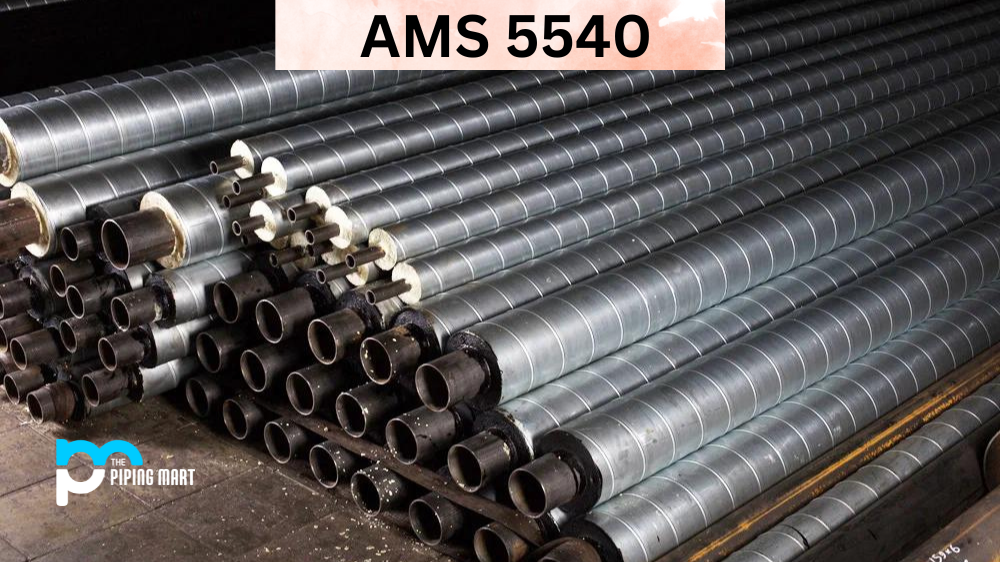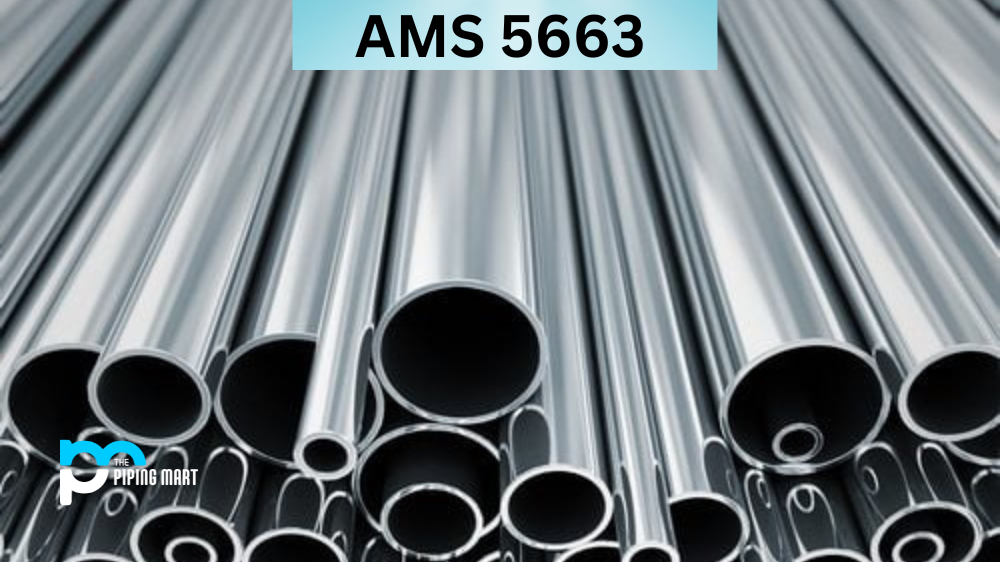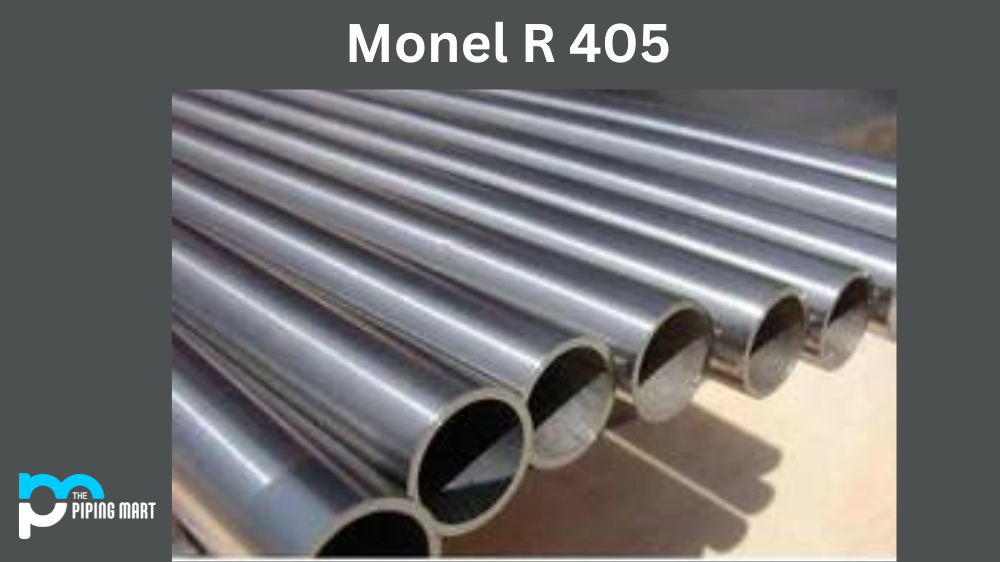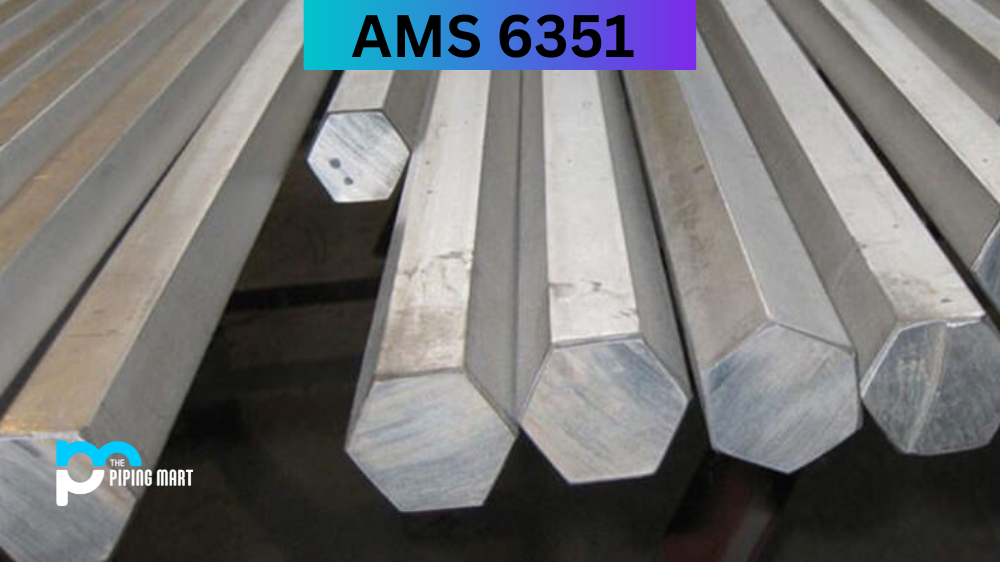AMS5540 is a popular nickel-chromium alloy often used in high-temperature applications. Known for its excellent resistance to oxidation and corrosion, this alloy is a great option for aerospace, chemical processing, and power generation industries. This blog post will comprehensively overview AMS 5540, including its composition, physical and mechanical properties, uses, hardness, and heat treatment.
What is AMS 5540?
AMS5540 (also known as Inconel 600) is a specification that defines the standards for the chemical composition and mechanical properties of a high-temperature nickel alloy. This material is commonly used in applications where high levels of heat resistance are required, such as gas turbines, aircraft engines, and power generation systems. AMS 5540 sets strict guidelines that ensure the quality and reliability of this crucial material. The properties of AMS5540 make it ideal for use in demanding environments where temperatures can reach up to 1100°C and where there is a need for high-strength, corrosion-resistant alloys. So, if you are working in industries that require such durability, then it’s essential to understand the specifications of AMS 5540.
AMS 5540 Composition
AMS5540 is a nickel-chromium-cobalt-molybdenum alloy with small amounts of iron, tantalum, and titanium. This combination of elements gives the alloy impressive corrosion and oxidation resistance and high strength and toughness.
| Element | Min | Max |
| Carbon | — | 0.10 |
| Nickel | 72.0 min | |
| Chromium | 14.0 | 17.0 |
| Iron | 6.00 | 10.00 |
| Silicon | — | 0.50 |
| Manganese | — | 1.00 |
| Sulfur | — | 0.015 |
| Copper | — | 0.50 |
AMS 5540 Physical Properties
AMS 5540 has a density of 8.2 grams per cubic centimetre and a melting point of 1,325 degrees Celsius. It also has an electrical resistivity of 1.01 micro-ohm-cm at room temperature and a thermal conductivity of 10.7 watts per meter-Kelvin at 21 degrees Celsius.
| Physical Properties | °F | British Units | °C | Metric Units |
| Density | Room | 0.304 lb./cubic in. | Room | 8.43g/cubic cm |
| Electrical Resistivity |
70 200 400 600 800 |
40.6 microhm-in. 40.9 41.5 42.2 43.0 |
21 93 204 316 427 |
1.03 microhm-m 1.04 1.05 1.07 1.09 |
| Mean Coefficient of Thermal Expansion |
70-200 70-400 70-600 70-800 |
7.4 microinches/in.-°F 7.7 7.9 8.1 |
21-93 21-204 21-316 21-427 |
13.3 x 10(-6)m/m·K 13.9 14.2 14.6 |
| Thermal Conductivity |
70 200 400 600 800 |
103 Btn-in./ft².-hr.-°F 109 121 133 145 |
21 93 204 316 427 |
14.8 W/m·K 15.7 17.4 19.2 20.9 |
| Modulus of Elasticity |
Room | 30.0 x 10(6) psi | Room | 207 GPa |
AMS 5540 Mechanical Properties
AMS 5540 has a tensile strength of 118,000 psi and yield strength of 59,000 psi. It also has a high elongation at a break of 45%. In addition, the alloy maintains its mechanical properties at high temperatures, making it an ideal choice for use in high-temperature applications.
| Density | 8.47 g/cm3 |
| Melting Point | 1413 °C (2580 °F) |
| Tensile Strength | Psi – 95,000 , MPa – 655 |
| Yield Strength (0.2%Offset) | Psi – 45,000 , MPa – 310 |
| Elongation | 40 % |
AMS 5540 Equivalent
- UNS N06600
- AMS 5540
- ASTM B 168
- ASME SB 168
- 10204
- EN 2.4816
AMS 5540 Uses
Thanks to its impressive corrosion and oxidation resistance, AMS 5540 is used in various industries. It is commonly used in gas turbine parts, chemical processing equipment, and aircraft engine components. It has also been used in nuclear reactor components and spacecraft hardware.
AMS 5540 Hardness
AMS 5540 has a Rockwell hardness of B91 and a Brinell hardness of 194. These hardness values make the alloy suitable for high-stress applications requiring high strength and durability.
AMS 5540 Heat Treatment
AMS 5540 can be heat treated to improve its mechanical properties. The solution annealing process involves heating the alloy to 1,040-1,090 degrees Celsius, then cooling it slowly in the air. This process helps to reduce internal stress and improve the alloy’s ductility and toughness.
Conclusion
In conclusion, AMS 5540 material is a versatile alloy with excellent corrosion and oxidation resistance, high strength, and durability. It is commonly used in aerospace, chemical processing, and power generation industries. The alloy’s impressive physical and mechanical properties, as well as its hardness and heat treatment capabilities, make it a popular choice for use in high-temperature applications. Whether you’re looking to improve the performance of your gas turbine or aircraft engine, AMS 5540 is an alloy worth considering.

Meet Bhavesh, a seasoned blogger with a wealth of knowledge and experience. From metal products manufacturing to retail, Bhavesh has a diverse background in various industries and is dedicated to sharing his insights and expertise with readers.




